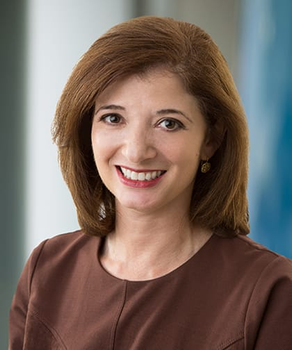Niemann-Pick Disease Overview
Learn About Niemann-Pick Disease
Niemann-Pick disease is a condition that affects many body systems. It has a wide range of symptoms that vary in severity. Niemann-Pick disease is divided into four main types: type A, type B, type C1, and type C2. These types are classified on the basis of genetic cause and the signs and symptoms of the condition.
Niemann-Pick disease types A and B is caused by mutations in the SMPD1 gene. This gene provides instructions for producing an enzyme called acid sphingomyelinase. This enzyme is found in lysosomes, which are compartments within cells that break down and recycle different types of molecules. Acid sphingomyelinase is responsible for the conversion of a fat (lipid) called sphingomyelin into another type of lipid called ceramide. Mutations in SMPD1 lead to a shortage of acid sphingomyelinase, which results in reduced break down of sphingomyelin, causing this fat to accumulate in cells. This fat buildup causes cells to malfunction and eventually die. Over time, cell loss impairs function of tissues and organs including the brain, lungs, spleen, and liver in people with Niemann-Pick disease types A and B.
Niemann-Pick disease types A and B is estimated to affect 1 in 250,000 individuals. Niemann-Pick disease type A occurs more frequently among individuals of Ashkenazi (eastern and central European) Jewish descent than in the general population. The incidence within the Ashkenazi population is approximately 1 in 40,000 individuals.
This condition is inherited in an autosomal recessive pattern, which means both copies of the gene in each cell have mutations. The parents of an individual with an autosomal recessive condition each carry one copy of the mutated gene, but they typically do not show signs and symptoms of the condition.
The Children's Hospital At Montefiore
Melissa Wasserstein is a Pediatrics provider in Bronx, New York. Dr. Wasserstein is rated as an Elite provider by MediFind in the treatment of Niemann-Pick Disease. Her top areas of expertise are Acid Sphingomyelinase Deficiency (ASMD), Niemann-Pick Disease, Reticulohistiocytoma, and Splenomegaly.
Eugen Mengel practices in Hochheim, Germany. Mr. Mengel is rated as an Elite expert by MediFind in the treatment of Niemann-Pick Disease. His top areas of expertise are Niemann-Pick Disease, Acid Sphingomyelinase Deficiency (ASMD), Non-Langerhans-Cell Histiocytosis, and Reticulohistiocytoma.
Marc Patterson is a Neurologist and a Pediatric Neurologist in La Crosse, Wisconsin. Dr. Patterson is rated as an Elite provider by MediFind in the treatment of Niemann-Pick Disease. His top areas of expertise are Niemann-Pick Disease, Polycystic Lipomembranous Osteodysplasia with Sclerosing Leukoencephalopathy, Leukodystrophy, and CACH Syndrome. Dr. Patterson is currently accepting new patients.
Summary: An 18-month double-blind, randomized, placebo-controlled, multicenter, Phase 3 study to evaluate the safety and efficacy of oral nizubaglustat (AZ-3102) in late-infantile and juvenile forms of Niemann-Pick type C disease and in late-infantile and juvenile-onset forms of GM1 gangliosidosis or GM2 gangliosidosis
Summary: This study will evaluate clinical and laboratory tests that might be useful in determining if an investigational drug can slow the progression of Niemann-Pick Disease, Type C (NPC), a genetic disorder that results in progressive loss of nervous system function. The study will: 1) look for a clinical or biochemical marker that can be used as a measure of response to treatment, and 2) define the rat...
Published Date: January 01, 2015
Published By: National Institutes of Health
